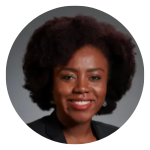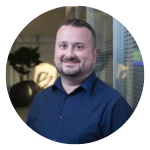Last month, Institute for the Development of Social Investment hosted the Brazilian Philanthropy Forum 2023, and Alliance asked its readers what session they would like to hear about most in a poll. The winner was ‘Territorial Community Alliances: from the environment to human rights’ – take a look at our conference report below.
Held in São Paulo on the 14th of September, the Brazilian Philanthropy Forum emphasised the need for ‘Boldness’ in approaches to transformative, diverse, and inclusive philanthropy. This theme was particularly central in a session on “Territorial Community Alliances: from the environment to human rights”.
Quoting Maya Angelou, Diane Pereira Sousa, the host of the panel, began the discussion by reminding the audience that “courage is the greatest of virtues because, without courage, you can’t practice any other virtue consistently”. Through this framing, Diane highlighted the need for people working in philanthropy to approach partnerships and network-making with courage and boldness, to engage unsuspecting alliances and to pursue improbable connections.
The three panellists discussed how thinking outside of the box has led them to create meaningful and impactful alliances in the areas of environmental justice, community philanthropy and Indigenous rights. The key insights from each speaker are outlined below:
Insights from Braulina Baniwa: Executive Director of the National Articulation of Indigenous Women, Warriors of Ancestrality (ANMIGA):
- When asked to speak on the theme of the conference, Braulina highlighted that “courage and boldness is to be born an Indigenous woman in this country”. Braulina demonstrated that it is an act of courage for Indigenous women to loudly occupy the spaces that they have traditionally and systematically been excluded from.
- Braulina touched on issues affecting Indigenous women, including the impact of extractive economies. She brought attention to the development of mining and power plants on Indigenous land and the impact these have had on water contamination and Mercury poisoning for Indigenous communities across Brazil.
- She highlighted that the authentic inclusion of Indigenous women in philanthropy, business, government, and civic society is integral, as it is these women who are willing and able to challenge ingrained ways of thinking about social, environmental, and economic problems, and to offer alternative and progressive solutions.
- For Braulina, ‘making improbable alliances’ is about inviting institutions to think about how they are harming Indigenous communities and how they can become involved in re-writing narratives, truth-telling, and platforming the voices of Indigenous women in solving the complex social and environmental issues.
 Insights from Allyne Andrade: Superintendent of the Brazil Fund
Insights from Allyne Andrade: Superintendent of the Brazil Fund
- Allyne touched on the importance of building trust and abandoning ‘top-down approaches’ in developing ‘improbable’ alliances.
- She shared insights into rethinking traditional monitoring and evaluation frameworks. Here, Allyne highlighted that evaluation must move beyond numbers and quantitative ways of monitoring impact, as such frameworks can be misaligned with the realities of communities on the ground.
- Instead, monitoring and evaluation frameworks must view qualitative, community-driven data collection methods, such as storytelling, as equally, if not more important, than quantitative ways of measuring success. Allyne stated: “Numbers are important, but narratives are essential to humanise the process and better understand the impact”.
- In addition, Allyne highlighted that philanthropy’s preoccupation with ‘outcomes’ can be limiting and damaging to those involved in a program. This point was supported by Braulina, who highlighted that projects run by Indigenous women face significant hurdles in securing funding because “funders want results in their language”. Instead, funders must allow communities to design their own, unique indicators for driving change and measuring success.
 Insights from Omar Rodrigues: Senior Engagement Director of ESG, Communications and Institutional Relations at the Boticário Group.
Insights from Omar Rodrigues: Senior Engagement Director of ESG, Communications and Institutional Relations at the Boticário Group.
- Created over three decades ago, the Boticário Foundation aimed to draw attention to environmental protection and sustainability at a time when such topics were missing from mainstream political and social agendas. Since then, the foundation has supported over 1600 environmental justice initiatives across Brazil.
- Building partnerships across sectors and communities has been crucial to the success of the Boticário Group’s initiatives. Through these partnerships, the foundation has recognised that economic, social, and environmental justice are intrinsically intertwined and there is a need to remain highly sensitive to the diversity of communities and people across Brazil.
- Omar discussed the foundation’s ‘Network of Solutions’ model. In this model, gaps are identified and solutions to environmental problems are co-created through engaging diverse stakeholders. Such stakeholders often include academics, local farmers, fishermen, tourist guides, biologists, environmentalists, and those working on social justice issues in the third sector.
Diane Pereira Sousa wrapped up the session with a metaphor: ‘For us to cross the river, we need to recognise that the canoe is not big enough anymore. So, we need to duplicate the canoe, or triple it, or we need to build a bigger boat. Improbable alliances build a bigger boat so that everybody can cross the river together’. Turning to the audience, they ended with a question ‘Are you ready to board the boat?’.
Kit Muirhead is the Partnerships Manager at Alliance Magazine.
Watch the full event recording here:
Credit:Source link



